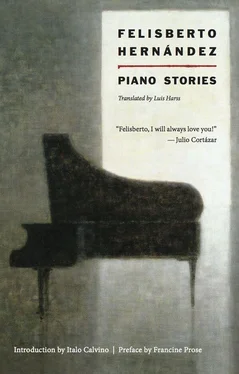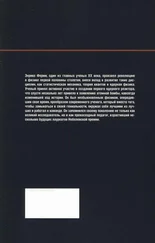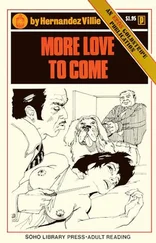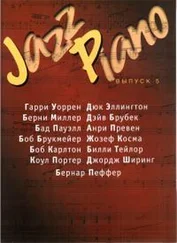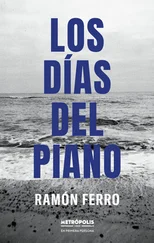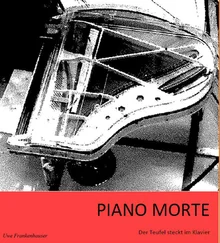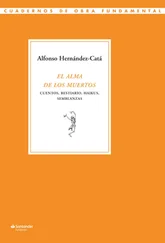Felisberto Hernandez - Piano Stories
Здесь есть возможность читать онлайн «Felisberto Hernandez - Piano Stories» весь текст электронной книги совершенно бесплатно (целиком полную версию без сокращений). В некоторых случаях можно слушать аудио, скачать через торрент в формате fb2 и присутствует краткое содержание. Год выпуска: 2014, Издательство: New Directions, Жанр: Современная проза, на английском языке. Описание произведения, (предисловие) а так же отзывы посетителей доступны на портале библиотеки ЛибКат.
- Название:Piano Stories
- Автор:
- Издательство:New Directions
- Жанр:
- Год:2014
- ISBN:нет данных
- Рейтинг книги:4 / 5. Голосов: 1
-
Избранное:Добавить в избранное
- Отзывы:
-
Ваша оценка:
- 80
- 1
- 2
- 3
- 4
- 5
Piano Stories: краткое содержание, описание и аннотация
Предлагаем к чтению аннотацию, описание, краткое содержание или предисловие (зависит от того, что написал сам автор книги «Piano Stories»). Если вы не нашли необходимую информацию о книге — напишите в комментариях, мы постараемся отыскать её.
Piano Stories
Piano Stories — читать онлайн бесплатно полную книгу (весь текст) целиком
Ниже представлен текст книги, разбитый по страницам. Система сохранения места последней прочитанной страницы, позволяет с удобством читать онлайн бесплатно книгу «Piano Stories», без необходимости каждый раз заново искать на чём Вы остановились. Поставьте закладку, и сможете в любой момент перейти на страницу, на которой закончили чтение.
Интервал:
Закладка:
“The piano was a great friend of my mother’s.”
I made as if to go over and look at it, but she raised a hand and opened her eyes wide to stop me.
“I’m sorry but I’d rather you tried the piano after dinner, when the lights are on. Since I was a little girl I’ve been used to hearing the piano only at night. That was when my mother played it. She used to light the four candles in the candlesticks and play each separate note so slowly in the silence, it was as if she were also lighting up the sounds, one by one.”
A minute later she rose and, excusing herself, went out on the balcony, where she leaned her bare arms on the panes as if she were resting them on someone’s breast. But she came right back and said:
“When I see the same man go by several times through the red pane, he usually turns out to be violent or hot-tempered.”
I couldn’t help asking her:
“Which pane did you see me through?”
“The green one. It usually means someone who lives alone in the country.”
“I happen to like being alone among plants,” I said.
The door opened and the old man came in followed by a maid who was so short that I couldn’t tell whether she was a child or a dwarf. Her ruddy face shone over the little table she was carrying in her stubby arms. The old man asked me:
“What will you have?”
I was about to say “nothing,” but I thought that would offend him, so I named the first drink that came to mind. He had the maid bring him a small glass with the same dark drink I’d seen him take after the concert.
As night fell we started for the dining room. We had to go through the corridor of the parasols. The girl rearranged a few of them and glowed when I praised them.
The dining room was below street level. Through the small barred windows one could see the feet and legs of the people going by on the sidewalk. A lamp with a green shade poured its light straight onto the white tablecloth, where old family treasures had gathered as if to celebrate happy memories. We sat down, without a word, and for a moment each object seemed like a precious form of silence. When our pairs of hands started to appear on the tablecloth it seemed as natural as if they’d always lived there. I couldn’t stop thinking of the life in hands. Years back, hands had molded these objects on the table into certain shapes. After changing hands many times, the plates, glasses, and other small beings had found their home in a sideboard. Over the years they’d had to serve all sorts of hands. Any one of those hands could pile food on the plates’ smooth bright faces, make the pitchers fill and empty their hips and the knives and forks sink into the meat, cut it up and bring the pieces to the mouth — after which the small beings were scrubbed, dried, and led back to their small dwellings in the sideboard. Some of these beings could outlive many pairs of hands, some of which would treat them lovingly and be long remembered, but they would have to go on serving in silence.
A while back, when we were in the girl’s bedroom and she had not yet turned on the light — she wanted to enjoy every last bit of the evening glow coming from the balcony — we had spoken about the objects. As the light faded we could feel them nestling in the shadows as if they had feathers and were preparing for sleep. She said they developed souls as they came in touch with people. Some had once been something else and had another soul (the ones with legs had once had branches, the piano keys had been tusks). But her balcony had first gained a soul when she started to live in it.
Suddenly the ruddy face of the dwarf maid appeared over the edge of the tablecloth. Although she reached out confidently to grasp things in her tiny hands, the old man and his daughter slid their plates toward her. But when she handled them, the objects on the table lost their dignity. The old man also had a hasty, tactless way of grabbing the pitcher by the neck and wringing the wine out of it.
At first, conversation was difficult. Then a grandfather’s clock made its presence felt by pounding out the time. It had been ticking against the wall behind the old man, but I had forgotten it was there. When we started up again the girl asked me:
“Aren’t you fond of old clothes?”
“Sure I am! And going back to what you were saying about objects, clothes are the ones that have been in closest touch with us” — here I laughed but she remained serious — “and I wouldn’t be surprised if they kept something more of us than just the shapes of our bodies and a whiff of our skin.”
But she wasn’t listening. Instead, she had been trying to interrupt, like someone watching others play jump-rope, waiting for her chance to cut in. No doubt she had asked the question thinking of what she would have answered. Finally she said:
“I make up my poems in bed” — she had already mentioned those poems in the afternoon — “and I have a white nightgown that has been with me ever since my first poems. Some summer nights I wear it in my balcony. Last year I wrote a poem for it.”
She had stopped eating and did not seem to notice the dwarf’s arms coming and going. Staring as in a vision she began to recite:
“To my white nightgown.”
I braced myself to listen, at the same time observing the dwarf’s hands. Her tiny stubby fingers were clenched as they approached things. They unbent only at the last moment, to clasp them.
At first I looked for different ways to show attention, but then I just nodded in time with the swinging motion of the clock’s pendulum. This bothered me, adding to the agony I was already in, trying to think of something to say before the girl finished. Besides, the old man had a bit of chard dangling from his lower lip near the corner of his mouth.
The poem was corny, but she seemed to have kept count of her syllables. She’d found an unexpected rhyme for “nightgown”: I would tell her it was fresh. Watching the old man, I had passed my tongue over my lower lip — but he was listening to his daughter. Now I began to feel the poem would never end. And then suddenly she rhymed “night” with “white” and it was over.
I sat there in serene contemplation, listening to myself, hoping to convey the impression that I was about to come up with something.
“I’m struck by the childish quality of the poem,” I began. “It’s very fresh and. .”
The word “fresh” wasn’t out of my mouth when she started to say:
“I have another one. .”
I felt miserable. . and treacherously concerned only with my own selfish needs. The dwarf was back with the next platter and I made a show of helping myself to a generous amount. All the glamour was gone from the objects on the table, the poem, the house overhead, even the parasols in the corridor and the ivy that grew up one whole side of the house. Wrapped up in myself, I gorged on the food, shamelessly. There wasn’t a time the old man clutched the neck of the pitcher when my glass wasn’t empty.
When she had finished her second poem I said:
“If this weren’t so tasty” — and I nodded at my plate — “I’d ask to hear more.”
The old man said at once:
“She ought to eat first. There’ll be time for that later.”
I was starting to feel cynical and at that moment I wouldn’t have minded growing a huge paunch. But then something made me want to cling to the poor old man and be kind to him. So, pointing to the wine, I said I’d recently heard a funny story about a drunkard. I told the story and when it ended they both laughed desperately, so I told them some more stories. There was sorrow in the girl’s laughter, but she begged me to go on telling my stories. Her mouth had stretched at the edges, into a painful gash. Her eyes, caught in their web of “crow’s feet,” were full of tears, and she was pressing her clasped hands between her knees. The old man was coughing so hard he had to put down the pitcher before filling his glass. The dwarf laughed, bending over as if to bow.
Читать дальшеИнтервал:
Закладка:
Похожие книги на «Piano Stories»
Представляем Вашему вниманию похожие книги на «Piano Stories» списком для выбора. Мы отобрали схожую по названию и смыслу литературу в надежде предоставить читателям больше вариантов отыскать новые, интересные, ещё непрочитанные произведения.
Обсуждение, отзывы о книге «Piano Stories» и просто собственные мнения читателей. Оставьте ваши комментарии, напишите, что Вы думаете о произведении, его смысле или главных героях. Укажите что конкретно понравилось, а что нет, и почему Вы так считаете.
